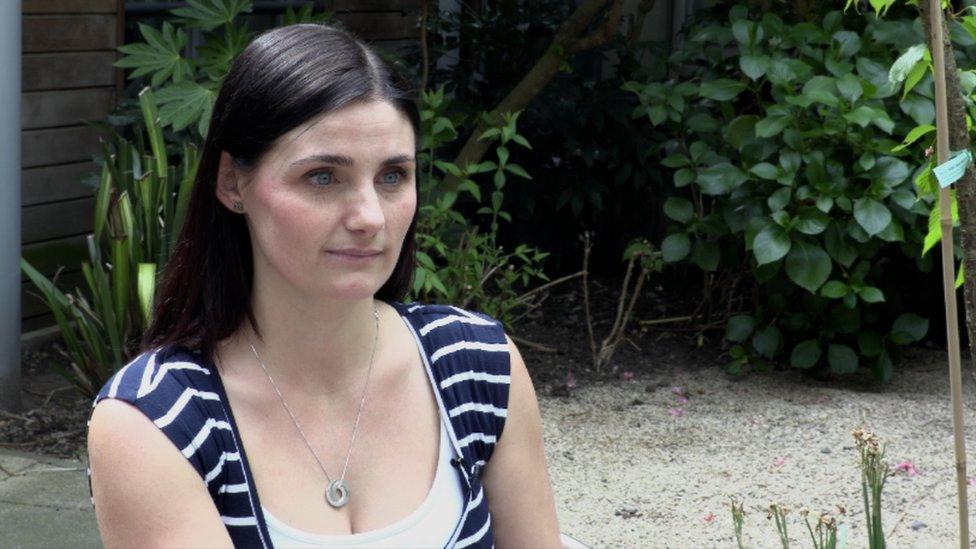Solihull charity urges fathers to talk after baby loss
- Published
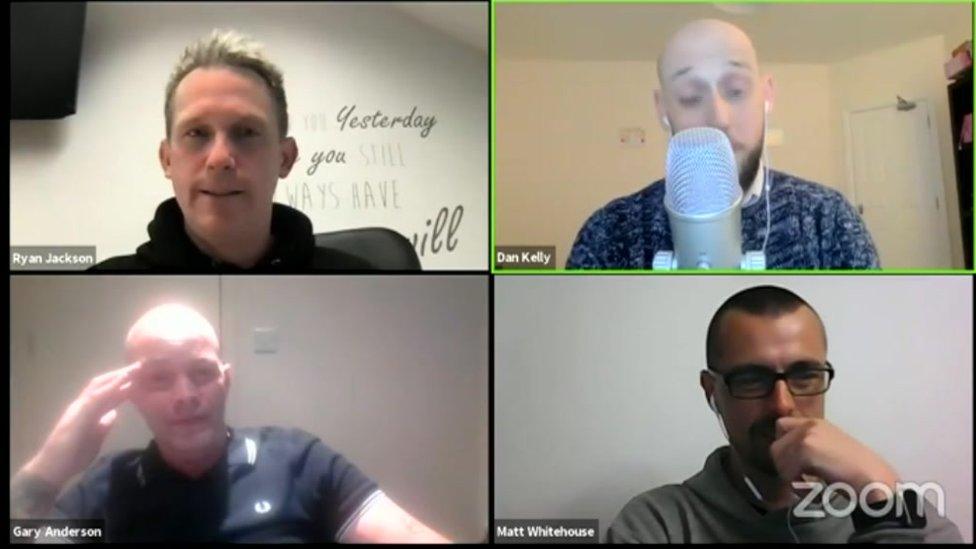
The Still Parents podcast has been launched by the Lily Mae Foundation bereavement charity
A group of men hope a podcast can help encourage fellow fathers who have gone through the pain of losing a child.
It was set up by the Lily Mae Foundation, a charity founded by Ryan Jackson, from Solihull, following the death of his daughter in 2010.
The 39-year-old said like many men he "boxed" away his feelings and focussed on fundraising.
A year later he said the grief "really hit" and he now wanted to use the Still Parents podcast to help other fathers.
Lily Mae was stillborn at 37 weeks into his wife Amy's pregnancy.
"We didn't know we were having a girl until [we were] told there was no heartbeat. Because I had wanted a girl, it probably made it harder to deal with," he said.
"Even... at Lily Mae's funeral, I wanted to take that walk with Lily Mae... That is why it was important to me to carry Lily Mae into the church.
Mr Jackson said he had dreamed of taking a very different walk down the aisle of the church with his daughter - for her wedding.
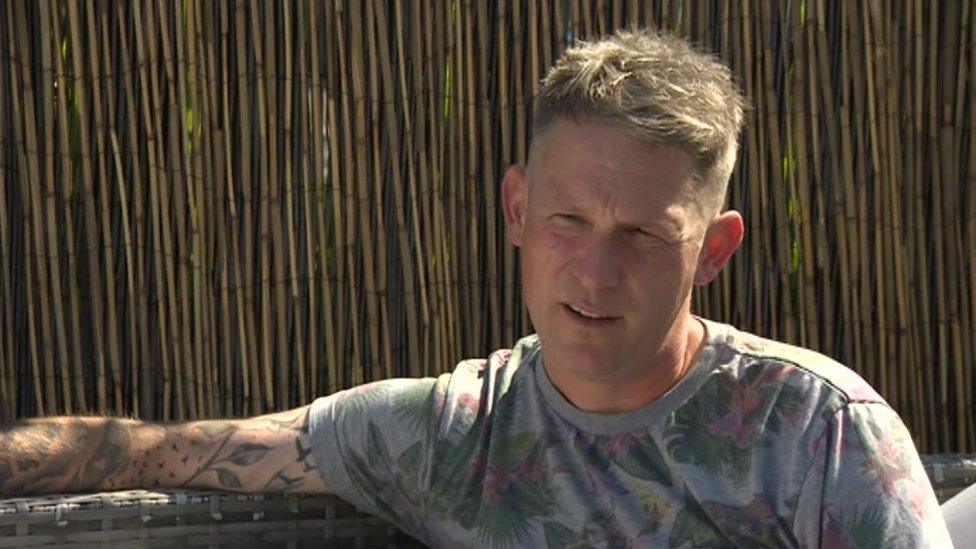
Ryan Jackson said although Lily Mae was not here, he knew his charity was "helping so many other people"
Lily Mae's older brother is now 14 and Mr Jackson also has a 10-year-old son and daughters aged six and four.
Asked about having more children after Lily Mae's death, he said he was "very anxious, but obviously very grateful".
He added: "They know they have a sister who's not there. They talk about her as well."
The Still Parents podcast deals with difficult issues like stillbirth, neonatal deaths, miscarriages and medical terminations.
'Social stigma'
Mr Jackson said he had previously attended meetings of the stillbirth and neonatal death charity Sands once a month.
He said: "Men find it difficult to talk and open up... [it's] a social stigma to some extent."
Mr Jackson, who has raised more than £3m for The Lily Mae Foundation, said Mansfield Town footballer Joe Riley was among those who had heard the podcast and later contributed to it.
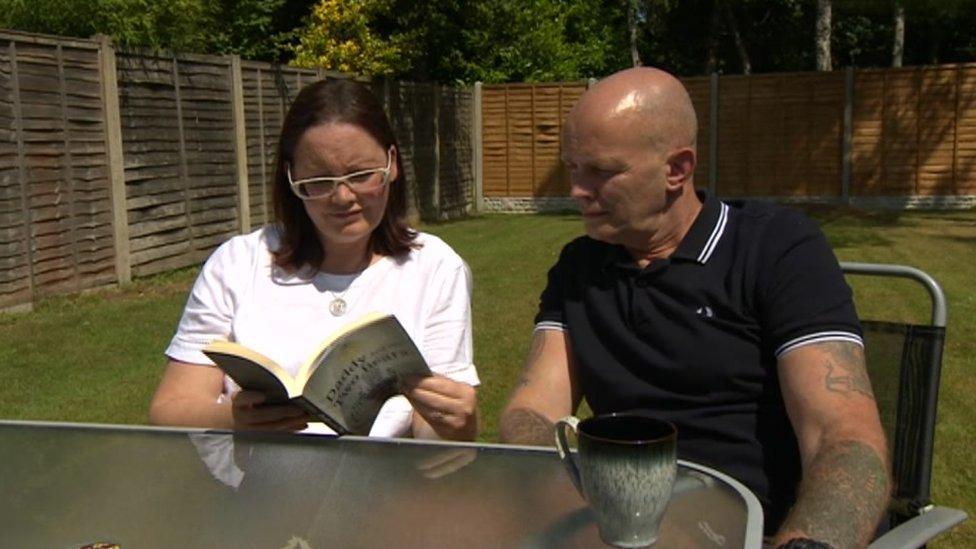
Gary and Michelle Anderson have published a book about his experiences
Another contributor, Gary Anderson, from Sutton Coldfield, said the deaths of his twin daughters Alana and Dana shortly after birth left him "broken inside".
However, he said at the time he felt he "had to be tough" and bottled up his grief.
"I believe the way I was conditioned as a young boy, you don't cry cos it's weak, you don't show emotion cos it's weak."
He said it was not until his wife Michelle was diagnosed with breast cancer in 2017, more than 10 years after his daughters' deaths, that his grief surfaced.
Mr Anderson told the BBC he did not believe there was much help available for either parent, but particularly men.
He and his wife have published a book, Daddy and the Two Bears, about his experiences.

Follow BBC West Midlands on Facebook, external, Twitter, external and Instagram, external. Send your story ideas to: newsonline.westmidlands@bbc.co.uk, external
Related topics
- Published23 May 2021
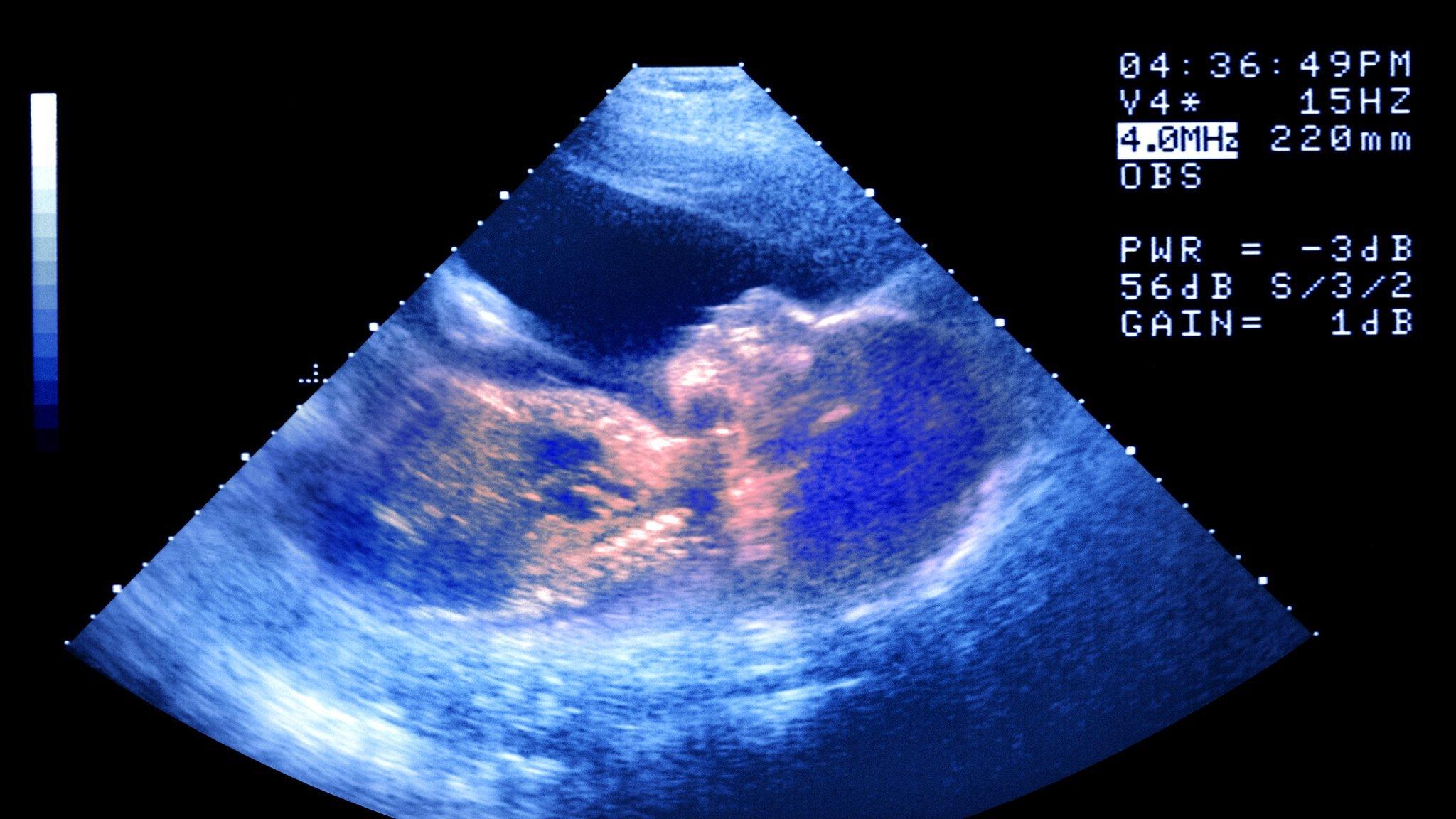
- Published21 May 2019
